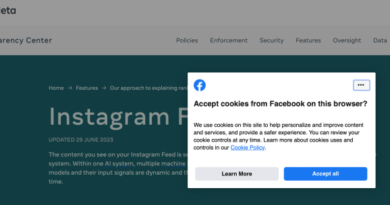Microsoft partners with AiFi to launch Smart Store Analytics, a tracking service for cashierless outlets
In partnership with AiFi, a startup that aims to enable retailers to deploy autonomous shopping tech cost-effectively, Microsoft today launched a preview of a cloud service called Smart Store Analytics. A part of Microsoft’s Cloud for Retail product suite, Smart Store Analytics provides retailers using AiFi’s technology with shopper and operational analytics for their fleets of “smart stores.”
AiFi’s “smart stores” are grocery stores, sports stadiums and convenience stores equipped with cameras that track what customers pick up and place in their carts, automatically charging their payment cards when they’re ready to check out. It’s similar to Amazon’s Just Walk Out tech; digital video captured by AiFi’s cameras feed a computer vision algorithm that recognizes shoppers’ behaviors, including when they pluck individual products from the shelves.
Once installed, Smart Store Analytics — which was also co-developed by Zabka Polska, a chain of Polish convenience stores — pulls store data from the AiFi platform to deliver insights that let retail managers better adjust store layouts and inventory. Smart Store Analytics shows how much customers shop, interact with products and move through aisles, displaying foot traffic as a heat map and tracking how much money each customer spends on average. The service also plots how long customers dwell in front of certain displays and the “unit sales-to-shopper height” ratio to help dial in on optimal shelf placements.
It might sound like a lot of personal data Smart Store Analytics is collecting. But Microsoft and AiFi claim that the service doesn’t use facial recognition or biometrics, only creating a virtual avatar of customers as they enter retail stores.
With Smart Store Analytics, AiFi will handle store setup, logistics and support while Microsoft will deliver models for optimizing store payout, product recommendations, inventory and so on. Żabka plans to use Smart Store Analytics in its 50-plus “Nano” stores to predict individual store demands, build ordering schedules for replenishment and react faster when a product is out of stock.

AiFi’s autonomous in-store tracking tech in action, with avatar stand-ins for real shoppers. Image Credits: AiFi
“Digital technology is what will make the difference between retailers that thrive during this period of economic, societal and technological change, and those that get left behind,” Shelley Bransten, CVP of worldwide retail and consumer goods industries at Microsoft, said in a statement. “Honestly, there’s not a retailer out there who doesn’t want to reimagine the store experience, but until now it’s not really been possible.”
Why’s Microsoft working with AiFi as opposed to rival startups like Sensei, Standard Cognition, Zippin, Grabango and Trigo? Besides being an Azure customer, AiFi’s market share could well have something to do with it. The California-based company claims to be the world’s largest provider of autonomous shopping solutions, with a platform that’s deployed in 100 retail spaces across North America, Europe, the Middle East, Asia and Australia. In addition to having autonomous shopping tech in grocery stores, AiFi’s brought it to college campuses, sports venues and workplaces, including the Miami Dolphins stadium and the University of Denver; over 800,000 shoppers have used it to make 1.5 million purchases to date.
“Our platform is way more flexible than a lot of our competition because we don’t have to touch the shelves at all,” AiFi CEO Steve Carlin said in a press release. “You can take a space that already exists and retrofit it. And you can move the shelves. You can’t do that with weight sensors, which require digging a trench in the floor, running cable to the shelf and electrifying the shelf. And once you’ve done that, that shelf isn’t moving.”
Interestingly, Microsoft was reportedly once developing a Just Walk Out-like system for tracking what people place in their shopping carts. The effort seemingly bore fruit in Dynamics 365 Connected Store, Microsoft’s service that uses a combination of computer vision, cameras and Internet of Things sensors to spotlight customers inside stores and personalize recommendations based on their behaviors.
Microsoft’s explorations in the space make sense given that so-called cashierless checkout systems stand to become quite a lucrative venture in the coming years.
A 2017 report from Juniper Research predicted that automated checkout systems would process more than $78 billion in transactions by 2022 across as many as 5,000 retail outlets. Juniper estimated that these technologies would drive an average increase in revenue of more than $300 per shopper per year, in part because they’d allow store associates to provide more personal service.
In a separate survey published in 2019, RBC Capital Markets estimated that Amazon’s cashierless Amazon Go stores bring in about 50% more revenue on average than typical convenience stores. The average Go store generates an estimated $1.5 million in revenue a year (excluding days when they’re closed), according to RBC, while a regular convenience store of the same size brings in just over $1 million a year in sales.




